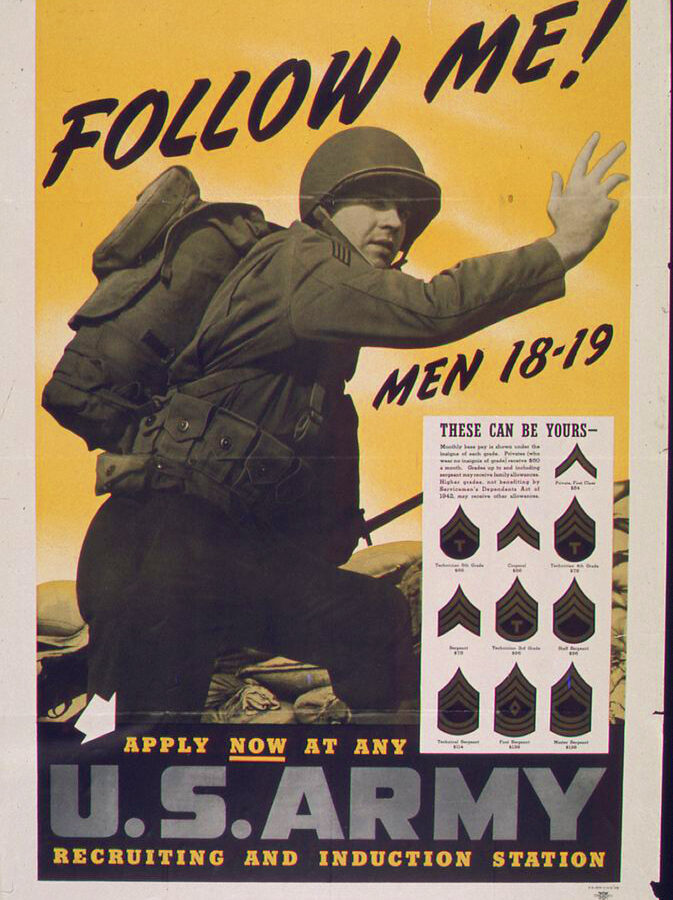In the decades leading up into the Second World War, the US saw a rise in enrolment at institutions for the “feeble minded”.
Simultaneously, budgets for these had been cut. This led in part to a surge in a number of “parole” programmes to reduce the population in institutions.
Paroled inmates were released into the community to live and work, often on the proviso that they were first sterilised.
This move underscored creeping suspicions regarding “mental deficiency”. Doubt had been cast upon the usefulness of IQ tests, and the “feeble minded” were displaying better social adjustment than predicted. Nevertheless, a general agreement persisted that they were biologically different to “normal” Americans so incurable.
Pearl Harbor (1941) and entry into the war by the United States changed everything.
With mass mobilisation, institution superintendents became aware that many of their parolees and runaways were succeeding in enlisting in the armed forces.
Many were pessimistic about the success of their charges in modern warfare, where skills such as reading, writing and mechanical aptitude would be required.
The pragmatism of mass mobilisation held sway. Military psychiatrists were loath to turn away any potential soldier because of a nebulous diagnosis
The American Association on Mental Deficiency published a proposal for the use of the “mentally deficient” in wartime, warning that the cost of finding the few who might successfully adapt could far outweigh their value.
Others suggested training them to do menial jobs to free up more “normal” men to go to the front.
The eugenicists took this further, suggesting that sending the “mentally deficient” to the front as cannon fodder was a sound way to protect the “healthy” and prevent a potential IQ imbalance should the former remain safe at home.
In the event, the pragmatism of mass mobilisation held sway. Up to 10,000 men were signed up every day at the start of conscription, and military psychiatrists were loath to turn away any potential soldier on the grounds of nebulous and irrelevant diagnoses.
Tests of IQ and mental age were deemed no longer appropriate in the armed forces, especially given that factors such as education, ethnicity and shyness skewed results, so new tests were devised.
These helped place recruits in positions suitable to their aptitudes, or identified those who could be sent on training courses to bring them up to army standards.
Many parolees brought pride to their former institutions through their wartime conduct. Their success was attributed to character growth and patriotism that enabled them to transcend the traits that had seen them incarcerated, such as low IQ or illiteracy.
Although some failed to adjust, usually due to behavioural issues, there were plenty of reports of parolees adapting to life in the forces and being promoted up the ranks.
Those on the home front also played their part, taking on the work of staff who had been called up, or joining in the patriotic work of donating blood, giving money or carrying out air-raid duty or general volunteer work.
The conduct of parolees in the Second World War had challenged many aspects of the label “mental deficiency”: how it was defined, to whom it was applied and what value there was in applying it.
The war had shown that the “mentally deficient” had as much of a part to play as any of their fellow countrymen, and that they relished the opportunity to play that part. In so doing, they undermined the tools that had kept them apart from society.
However, the end of the war brought an end to the labour shortage, and an end to this period of normalisation.
The criticisms of the IQ test and the acknowledgement of the common humanity of every member of US society became muted as soldiers returned to resume their economic and societal roles and the “mentally deficient” were squeezed out once again.
Source: Gelb S. “Mental deficients” fighting fascism: the unplanned normalization of World War II. In: Noll S, Trent Jr JW (eds). Mental Retardation in America: a Historical Reader. New York: New York University Press; 2004: 308-321





